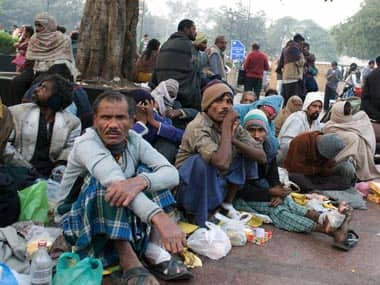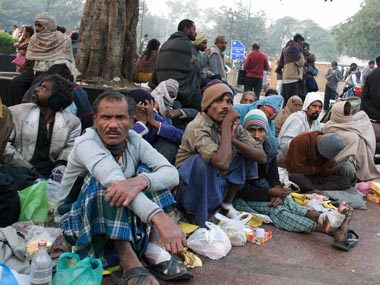Going by recent events, beggars in Andhra Pradesh may well suffer from cognitive dissonance. They are faced with a unique situation where the state government can both arrest them and pay them for being into begging. [caption id=“attachment_1024385” align=“alignleft” width=“380” class=" “]  Representative Image. Reuters[/caption] According to a report in The Times of India, the Andhra Pradesh government has come up with a scheme to pay Rs 5000 to beggars to get them to stay away from the Godavari Pushkaralu religious festival. They are being given the amount as compensation for loss of income. Yet, at the same time, Andhra Pradesh, like most other states in India, has a law criminalizing begging- the Andhra Pradesh Prevention of Beggary Act, 1977. In 2010, the government also notified rules which allow a police officer above the rank of sub-inspector to arrest people found begging without warrant. If the person is found to be physically fit and still indulging in begging, he or she can be sent for detention in a workhouse for up to three years. The Andhra Pradesh government has now come up with the scheme to ensure that beggars stay away from the Godavari Pushkaralu festival, which is held only once in 144 years. Along with the Rs 5000 amount, they are also said to be offered free food. However, according to the report, this has led to a large number of beggars queuing up to take the compensation. The scheme has also led to a queer situation where several people who are not beggars are seeking to identify themselves as such. Tarique Qureshi, who started a project named ‘Koshish’ aimed at working for the rights and rehabilitation of beggars in Mumbai, said, “Rather than such schemes, the government should take long-term corrective measures to develop the capacities of beggars to enable them to live a better life.” Koshish, a field action project of the Tata Institute of Social Sciences, also engages in advocacy for securing citizenship rights to beggars. The Bombay Prevention of Begging Act, 1959, which most states have adopted as an anti-beggary law, has a wide definition of what constitutes “begging.” It includes not just soliciting alms, but also having no visible means of sustenance, or “wandering about or remaining in any public place in such a condition or manner, as makes it likely that the person doing so exist soliciting or receiving alms. Human rights activists have criticized anti-beggary laws as having colonial roots, and for criminalizing poverty. In 2009, the Human Rights Law Network (HRLN) filed a petition challenging the validity of the Bombay Prevention of Begging Act, 1959. The plea is pending in the Supreme Court.
The AP government is paying Rs 5000 to beggars to get them to stay away from a religious festival. They are being given the amount as compensation for loss of income.
Advertisement
End of Article


)

)
)
)
)
)
)
)
)



